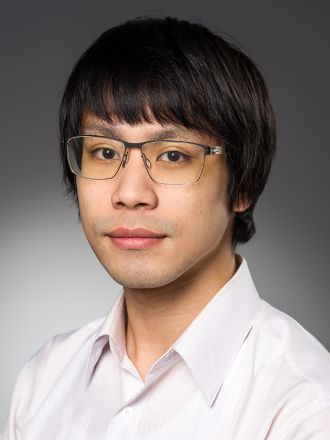Ping-Han was awarded a scholarship to study abroad by the Ministry of Education, Taiwan, this summer.
He comments: “I studied my Bachelor’s degree at the National Taiwan University. My undergrad was in bio-industrial mechatronics engineering. In my third year, I switched my research focus to bioinformatics and then took a Master’s in Biomedical Electronics and Bioinformatics. It was after this that I started to analyse data from next-generation sequencing technology.”
Kuijjer group gave fresh opportunities to work with biological networks
“I moved to Norway to start my PhD in Marieke’s group in 2019. My project mainly focuses on developing a machine learning algorithm that can extract relevant genetic information from large-scale biological networks, involving different kinds of molecular data types. I wanted to study in Europe and had always wanted to do something related to network analysis. Before my PhD, I hadn’t had the opportunity to work with graph data structure, and it is quite challenging since the complexity is greater than ordinary structured table data. For me it’s a completely different way to analyse data, so the PhD position here in Marieke’s group offers a great opportunity for me to expand my knowledge and work in this area.”
Scholarship assessed on feasibility, novelty and relevance
The Ministry of Education in Taiwan approached students studying abroad to offer them the chance to apply for the scholarship. They particularly focused on graduate students.
The application involved a rigorous assessment process, as Ping-Han describes:
“The application process involved a written proposal for a research project which was then assessed by an evaluation committee. The committee assessed the proposal based on its novelty and quality, and also on the feasibility of the research project. They also focused on selecting projects that were relevant in terms of the expertise, in both industry and academia, that they want to further develop in Taiwan.”
Scholarship will help support daily living expenses, and provide more options after graduation
The scholarship provides students studying abroad with support for their daily living expenses. It also means that students have more opportunities to remain in their country of study after they submit their thesis, as there can be some delays between thesis submission and public defence. The application itself also gave Ping-Han some very useful experience. He comments:
“It was great news to hear that I had received the scholarship - I didn’t expect it. I’m really grateful to Marieke and the rest of the group as they provided a lot of support in terms of helping me to describe how my research could be applied. I generally focus more on method development and less on the potential application of these methods to solve practical biological problems and improve precision medicine. It is great to have had the opportunity to collaborate with researchers with expertise in molecular medicine here at NCMM.
“It was also a great experience in terms of being involved in writing a successful funding application. The scholarship means that I don’t have to worry so much about the time between submitting my thesis and waiting for the public defence. It also means that, if I want to find a job in Norway after my thesis, I have some financial support between contracts. I’m very pleased about the outcome!”
Learn more about the Kuijjer lab via their pages on the NCMM website and their external lab website.
